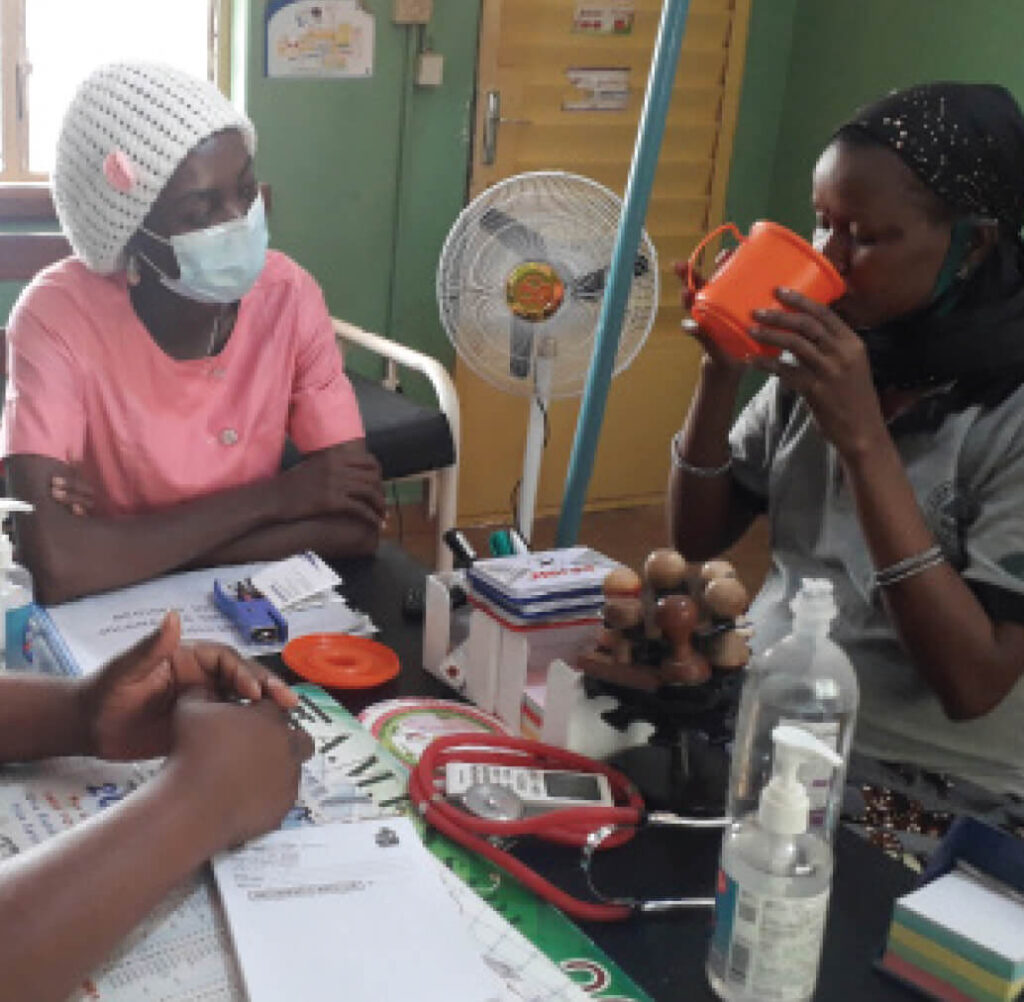An Innovative Approach to Support Maternal Health in the Department of Atacora
An Innovative Approach to Support Maternal Health in the Department of Atacora

Antenatal care (ANC) is essential for protecting the health of mothers and children, preventing and detecting health problems, and providing advice on maintaining a healthy lifestyle. However, the rate of pregnant women attending all four recommended ANC visits (ANC4) during pregnancy remains low across Benin and in the department of Atacora. With the efforts of local officials and health workers, this rate saw a slight increase from 21.3% in 2019 to 29.4% in 2021.
According to Mrs. Solange Doko Pontikamou, Head of Obstetrical Care at the Natitingou-Boukombé-Toucountouna (NBT) Health Zone (HZ), certain factors may contribute to the low rates of ANC4, including clients feeling unwelcome at health facilities, poor involvement of community leaders such as village chiefs and community health workers, and nonfunctional quality improvement teams at health facilities.
In response, the USAID Integrated Health Services Activity (IHSA) helped strengthen leadership and governance skills by implementing the Leadership Development Program Plus (LDP+). The approach enables teams to systematically analyze a challenge and identify practical solutions using local resources and expertise.
A preliminary analysis was conducted by the HZ and the Atacora Departmental Directorate for Health (DDS) using data from the department to identify the most pressing challenges and identify a measurable result that stakeholders wanted to focus on: Increasing ANC4 attendance.

In April 2022, the quality improvement teams identified specific results related to ANC4 attendance to reach by October 2022 for each HZ. These included an increase from 26.84% to 33.84% for the NBT HZ, from 26.6% to 32.6% for the Tanguiéta-Matéri-Cobly (TMC) HZ, from 30.98% to 35.97% for the Kérou-Kouandé-Péhunco (2KP) HZ, and from 28.28% to 34.28% for the DDS in general, for an average increase of 6% during the six-month timeframe.
IHSA supported the DDS and HZ teams between May and October 2022 by identifying root causes and monitoring their progress achieved through LDP+.
The team accomplished some important results, including creating a pool of resources and coordination and communication mechanisms to meet service needs and helping sensitize HZ staff on priority topics such as how to better welcome patients. Additionally, the DDS requested that HZ médecins coordonnateurs share monthly schedules and reports from ANC4 outreach initiatives to facilitate real-time monitoring and suggestions for improvement and to develop harmonized monitoring tools for ANC4 outreach activities that are practical and foster integrated supervision.
At the HZ level, teams implemented a strategy to refresh outreach initiatives, established a system for reminders for ANC appointments, and created social media groups to share weekly communications about planning and implementation of outreach activities.
In December 2022, the health improvement team presented its results. All HZs surpassed their initial and projected results of ANC4 attendance, with 44.39% for NBT, 36.20% for TMC, and 39.07% for 2KP, for an average of 39.32% for the department—an 11-point increase from baseline compared to the expected six-point increase.